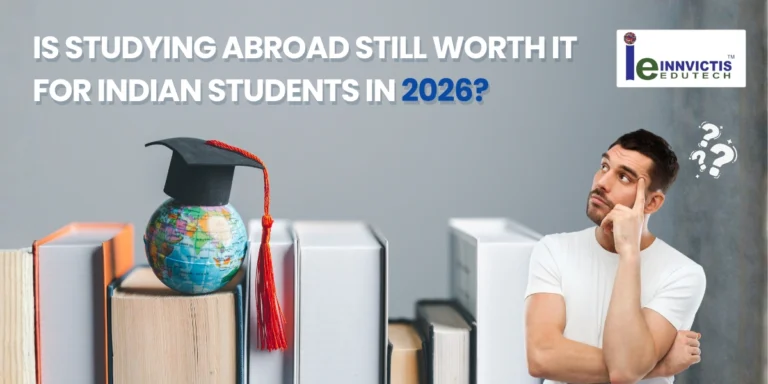Pursuing an MBBS degree is a significant step toward a medical career, and one of the biggest decisions aspiring doctors face is choosing between studying in India or abroad. Both options have their advantages, challenges, and financial considerations. This guide explores key differences to help you make an informed decision.
MBBS in India
MBBS (Bachelor of Medicine and Bachelor of Surgery) in India is a highly competitive program, with students required to clear the NEET (National Eligibility cum Entrance Test) for admission to government and private medical colleges. The duration of the course is 5.5 years, including a 1-year internship. Indian medical colleges follow the National Medical Commission (NMC) guidelines and provide education at an affordable cost in government institutions, whereas private medical colleges can be expensive.
MBBS Abroad
Many students opt for MBBS abroad due to limited seats and high competition in India. Countries like Russia, the Philippines, Kazakhstan, Georgia, and China offer affordable MBBS programs with globally recognized degrees. Most universities abroad follow the European Credit Transfer System (ECTS), and the course duration is 5-6 years, depending on the country. Students need to clear the FMGE (Foreign Medical Graduate Examination) upon returning to India to practice.
MBBS in India vs. MBBS Abroad
| Factors | MBBS in India | MBBS Abroad |
| Tuition Fees | ₹4-10 lakh (Govt.) ₹50 lakh-1 Cr (Private) | ₹15-50 lakh (varies by country) |
| Living Costs | ₹10,000-20,000/month | ₹15,000-30,000/month (varies by country) |
| Entrance Exam | NEET | NEET and University based Entrance Exam (varies by country) |
| Exam for Practice in India | None (Indian MBBS graduates can practice directly) | FMGE/NEXT |
| Eligibility Criteria | Completion of 10+2 education from a recognized State Board, ICSE, CBSE, or equivalent. Mandatory subjects: Biology, Physics, and Chemistry (Mathematics acceptable in place of Physics). English must be a compulsory subject. Minimum 50% aggregate in PCB (60% to 75%). Minimum age of 17 years. | Completion of 10+2 education from a recognized State Board, ICSE, CBSE, or equivalent. Mandatory subjects: Biology, Physics, and Chemistry (some countries accept Mathematics in place of Physics). English must be a compulsory subject. Minimum 50% aggregate in PCB (60% to 75% for selected countries). Minimum age of 17 years. |
| Intake Period | Government Colleges: August – September | Summer Intake (May – July) Spring Intake (January – March) Fall Intake (August – October) |
| Duration | 5.5 years (including internship) | 5-6 years (varies by country) |
| Medium of Instruction | English (Govt. and Pvt.) | English/Other (varies) |
Destinations for MBBS Abroad and MBBS in India
Popular Countries for MBBS Abroad
- Russia – Affordable fees, top-ranked universities
- Philippines – Follows US-based education system, English medium
- Kazakhstan – Low tuition fees, good infrastructure
- Georgia – High-quality education, no entrance exam required
Top Cities for MBBS in India
- Delhi – AIIMS, Maulana Azad Medical College
- Mumbai – Grant Medical College, KEM Hospital
- Bangalore – St. John’s Medical College, MS Ramaiah Medical College
- Chennai – Madras Medical College, SRM Medical College
- Kolkata – Calcutta Medical College, NRS Medical College
Budget-Friendly Countries for MBBS Compared to India
If private medical colleges in India are too expensive, here are some budget-friendly options abroad:
- Russia
- Kazakhstan
- Georgia
- Kyrgyzstan
- Bangladesh
These countries offer world-class medical education at lower costs, making them attractive choices for Indian students.
These destinations provide affordable tuition fees, lower living expenses, and globally recognized degrees (WHO & NMC-approved). Unlike private Indian medical colleges, there are no hefty donations or capitation fees. Students also benefit from modern infrastructure, multicultural exposure, and better career opportunities.
Conclusion
Choosing between MBBS in India and MBBS abroad depends on your budget, career goals, and university preferences. If you secure a seat in a government medical college in India, it’s an excellent choice due to its affordability and direct pathway to practice. However, if you don’t get admission in a government college or private colleges are too expensive, MBBS abroad is a great alternative with lower costs, global exposure, and high-quality education.
Before making a decision, research the university’s recognition (WHO, NMC, ECFMG), get counselling from Innvictis Edutech and know more about accredited universities from abroad.
To know more about curriculum and living conditions connect with our expert who ensures that your chosen university provides adequate clinical exposure and is approved by NMC for practicing in India after clearing FMGE/NEXT.
Still confused? Let Innvictis Edutech guide you through the admission process and help you choose the best option for your medical career!







